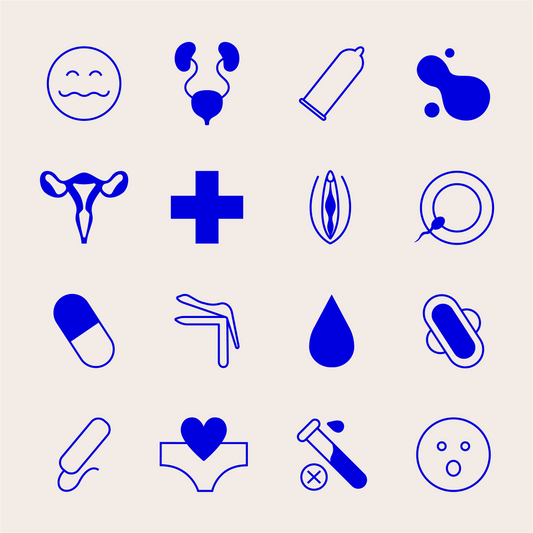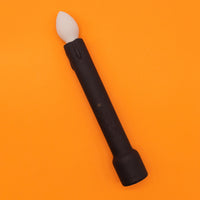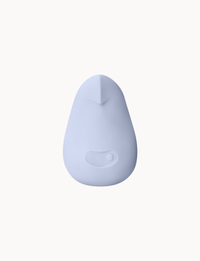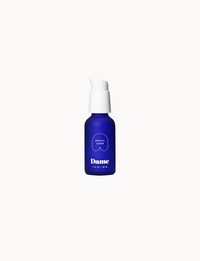Alexandra Fine, Credentialed Sexologist, M. Psych | Written by Dame
“Don’t Do That – You’ll Go Blind!” | Masturbation Is Good For You | How Much Is Too Much? | What’s The Right Amount?
Seriously?
“How often should you masturbate?” sounds like a setup line for a joke.
“Depends how much free time you have.”
“Well, start by ruling out the amount of time you have to sleep each night.”
“Whenever you want to have sex with someone who really loves you.”
There’s a reason why people ask the question, though.
It stems from a study published in the journal European Urology in 2016. Excerpts from its findings were published around the world with sensational headlines like this one:
“Ejaculating at least 21 times a month significantly reduces a man’s risk of prostate cancer.”
Is that really true? Should penis-havers pleasure themselves every chance they get? (And isn’t that awfully unfair to vulva owners?)
Yes, there is some truth to the headlines. In reality, though, the research findings certainly don’t suggest that you should mark your calendar with reminders to ejaculate 21 times each month.
We’ll get into that study, and many others, shortly. But here’s what you need to know, boiled down into three sentences.
- Masturbation isn’t a sin, it isn’t anything that should make you guilty, and it isn’t bad for you.
- A number of reputable medical studies show that masturbating can provide a wealth of health benefits and contribute to your sexual well-being.
- As you’ve certainly guessed, no one can really tell you the “right” number of times to masturbate.
Let’s dig deeper into the subject.
“Don’t Do That – You’ll Go Blind!”
It wasn’t all that long ago that parents, doctors or religious teachers told children – and in many cases, other adults – that masturbating had serious consequences.
Children were more likely to believe outlandish claims like “playing with yourself can make you go blind” or “masturbating will put hair on your palms.” But assertions that were harder to fact-check, like “self-pleasure can make you impotent or infertile,” were the ones that adults took seriously back in the 18th, 19th and even 20th centuries.
In fact, some of the primary sources for wildly incorrect anti-masturbation information back then were doctors, whose medical advice was light years away from the facts we expect from healthcare professionals today.
One of the first to preach against masturbation 0was American physician (and Declaration of Independence signer) Benjamin Rush. In 1812 he published a treatise “Of The Morbid State of the Sexual State,” in which he wrote about three mentally-ill patients “driven to mania by onanism.” (Onanism is a synonym for masturbation. More about its origin shortly.)
A pamphlet was widely circulated through London around the same time, and went even further. “Onania, or the Hideous Sin of Self Pollution,” went through dozens of printings, sold tens of thousands of copies, and was translated into several languages. It warned that “self pollution” led to – among other issues – “disturbances of the stomach and digestion…vomiting, nausea, weakening of the organs of breathing…paralysis…impotence, lack of libido, back pain, disorders of the eye and ear, total diminution of bodily powers…thinness, pimples on the face, decline of intellectual powers, loss of memory…madness, idiocy, epilepsy, fever and finally suicide.”
Perhaps the most-important “authoritative” warning was issued three decades later, by British physician (and a highly-successful quack known for selling patent medicines) Robert James. His three-volume Medicinal Dictionary was used throughout Europe in the mid-18th century; it proclaimed that masturbation was a sin that caused “the most deplorable and generally incurable diseases.” Self-styled health popular health experts like Sylvester Graham (the inventor of the Graham cracker) and John Harvey Kellogg (the inventor of Corn Flakes) helped to perpetuate those beliefs.
The vilification of masturbation by “experts” continued until the turn of the 20th century. Philosophers Immanuel Kant and Jean-Jacques Rousseau both inveighed against the dangers of self-pleasure. So did well-known psychiatrists including Freud and Jean-Etienne Esquirol (who wrote that masturbation was recognized worldwide as a cause of insanity). It wasn’t until the 1900s that Freud moderated his views and others followed, but masturbation was still officially classified as a mental disorder until 1968.
For millennia, the practice had been viewed as a natural element of human sexuality, and most of the ancient Egyptian gods were said to have been fathered by the masturbation of the original god. So where did the misinformation promulgated during the Ages of Reason and Romanticism come from? Primarily the anti-masturbatory views of Western religions, which had erroneously interpreted a minor Biblical passage to declare self-satisfaction a sin.
In the passage, a character (named Onan – explaining the derivation of the term onanism) wasn’t actually pleasuring himself. He had been ordered to have sex with his late brother’s widow, but he pulled out before orgasm, “spilled his seed on the ground,” and was put to death for disobeying the Lord. Judeo-Christian religions interpreted that story as a prohibition against all non-procreative sex, including masturbation and the use of birth control.
As has often happened throughout history, “sin” was translated into “pathology” by authority figures in society at large. Religious prohibitions against masturbation became accepted “facts” justified by “medicine” – and in some societies and jurisdiction, they became law.
Things didn’t begin to change until 20th century scientific research was able to disprove many of the outlandish claims about masturbation, including those involving impotence and insanity. Amazingly it’s been less than 100 years since medicine, most organized religions (with notable exceptions like the Catholicism and mainstream Islam), and society at large accepted the reality understood by the ancient Greeks, Romans and Egyptians: masturbation is a natural and normal sexual practice.
What followed was the discovery that masturbation also provides a number of very desirable health benefits.
“Actually, Masturbation Is Good For You!”
Research hasn’t shown – and probably never will – the optimal number of times someone should masturbate in order to realize the benefits of self-stimulation.
One thing is clear, though: the optimal number is definitely higher than zero.
We’ll take a look at the many possible benefits of self-pleasure, after taking a closer look at that “21 times a month” story we mentioned at the start.
Masturbation and Prostate Cancer
The research that generated sensational headlines tracked the medical history and experiences of more than 30,000 penis owners over a period of nearly 18 years. The study showed, among other things, that those who ejaculated (through penetrative sex or masturbation) at least 21 times per month apparently lowered their risk of prostate cancer by around 33%.
This research was based on information submitted by survey participants every two years, so the results are dependent on what the respondents self-reported. Even so, the large number of participants makes the conclusions difficult to argue with: more masturbation = less risk. There’s no way to know exactly why frequent ejaculation affects prostate cancer risk, but some medical experts have theorized that it “cleans out” the reproductive system, eliminating potential cancer-causing bacteria and toxins.
There’s one more benefit that may make penis-havers happy. The more they ejaculate (either during sex or by masturbating), the lower the chances that they’ll suffer from erectile dysfunction. And the numbers are striking. Those who ejaculated fewer than once per week, according to a study published in the American Journal of Medicine, were more than twice as likely to develop ED as those who climaxed twice per week. And the infrequent ejaculators were more than three times as likely to suffer with erectile dysfunction as those ejaculating three times per week or more.
Masturbation and Cramps
We don’t want to leave out the vulva-havers in the audience, so here are some benefits for you, too. Orgasm causes the release of oxytocin, a hormone that’s a natural pain reliever; that’s one of the reasons why painful menstrual cramps can be relieved by masturbation. The other reason is that masturbating to climax increases blood flow to the uterus, relieving the pressure that causes cramping.
Increased blood flow can provide one extra benefit as well. It stimulates natural lubrication in the vagina, an always-positive development – but particularly welcome in those suffering from vaginal dryness due to menopause.
Pain, Immunity and Relaxation
The release of oxytocin during orgasm provides additional masturbation benefits for both penis and vulva owners. The hormone, along with others like dopamine and endorphins also released during arousal and climax, help relieve serious or chronic pain throughout the body. So feeling better after self-pleasure isn’t an illusion; there’s a legitimate reason why masturbating often lowers levels of physical pain.
It helps ease stress and anxiety, too. Oxytocin is known as the “cuddle hormone,” largely responsible for increasing the closeness that partners often feel after sexual activity. When released during and after masturbation, it can help relieve “mental pain” as well as physical pain.
Finally, increased amounts of oxytocin lower the body’s levels of the “fight or fight” hormone, cortisol – and cortisol is known to suppress the body’s immune system. Lower cortisol levels, plus the release of infection-fighting white blood cells that occurs during orgasm, can boost the body’s immune system.
Cardiac Health
You may not think of masturbation as a physical workout – but the American Heart Association does. It says that orgasm, whether reached via masturbation or penetrative sex, provides the same cardiac benefits as other types of mild-to-moderate exercise; that’s because of the increases in blood pressure and heart rate that occur during climax. More specifically, research shows that those who reach orgasm at least twice a week are 50% less likely to have a stroke or heart attack.
Safe Sex
You certainly realize this without our telling you, but safe sex is a benefit of masturbation. You’re not going to contract a sexually-transmitted infection or STD from your hand (or from your vibrator, as long as no one else has used it and you’ve washed off the old lube first). Naturally, you can’t get pregnant from “self care,” either. Even mutual masturbation lowers the risk of STIs and STDs as long as you’re careful (and don’t forget to clean those sex toys).
More Satisfying Sex Life
There’s no guarantee of this one, but masturbation can lead to a better sex life for several different reasons.
- Solo self-play, if you’re paying attention and not just doing a rub and tug, can teach you a lot about how your body responds to a variety of stimulation techniques. Not only can you use those techniques to let you enjoy your masturbation sessions more, but they’re also “information” you can share with a partner to help them excite you in the bedroom.
- Mutual masturbation, whether you’re playing solo in front of each other or playing with each other, can take things to the next level. You can learn how a partner excites themselves just by watching them, or they can show and tell you exactly what to do to build sexual tension and eventual release.
- If you feel any guilt about self-play, it can be eased and potentially erased by getting more comfortable with your masturbatory habits. Playing in front of a partner – or with them – can turn something that you only do in secret into a natural, normal part of sex play. It can also alleviate any guilt you might feel about self-pleasuring without their knowledge.
How Much Is Too Much?
There’s no “right answer” to the question “how often should you masturbate?” But there’s definitely an answer to the question “how much is too much?”
Asking the first question is somewhat like asking “How much chocolate should you eat?” Chocolate may be the greatest food ever created, but eating too much could cause stomach aches and weight gain, and even contribute to the development of type 2 diabetes.
Similarly, overindulging in frequent masturbation could lead to temporary side effects like soreness or decreased genital sensitivity. It can also lead to missed time at work or with the family. In fairness, however, skipping “regular” daily activities (including sex with a partner) to masturbate is more likely a sign of compulsive sexual behavior. It’s not simple enjoyment of self-love, it’s a problem that requires professional attention.
In short: if it’s interfering with your life, it’s probably compulsive masturbation – and you’re doing it too much.
What’s The Right Amount?
Data from two national surveys compiled by sex researcher Debby Herbenick’s National Survey of Sexual Health and Behavior (NSSHB) shows that solo masturbation is common in all age groups. It’s more frequent among those in their teens (when they’re less likely to have partnered sex) and those who are 70+ (when they’re most likely to be without a partner or less sexually active). Mutual masturbation is more common among those in their 30s.
Research generally looks at whether people masturbate, though, not how many times. And since no reputable studies report the average number of times that adults self-satisfy, there’s no way to define a “normal” frequency of masturbation.
The reality is that everyone is different. Medical condition, partner status, age – and of course, sex drive and ease of arousal – are most likely to affect how often someone masturbates. So the only “right” answer to “how often should you masturbate” is “as often as you feel the urge” – as long as it’s not affecting your daily life or an existing relationship.
After all, it’s not only good for your sex life. It’s good for your health and wellness!




















































